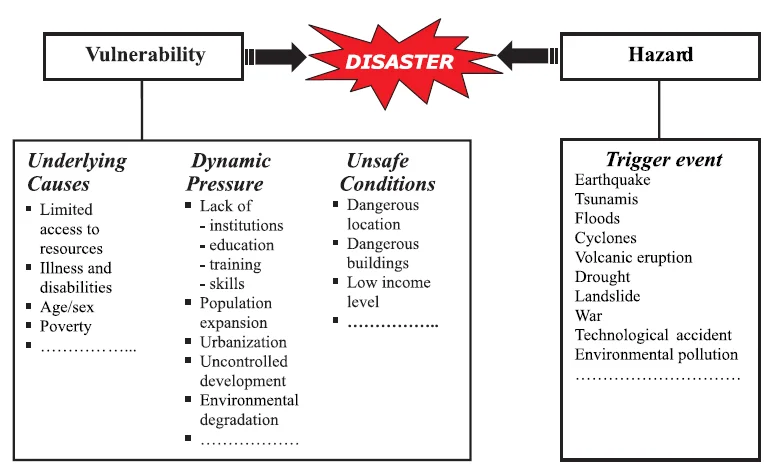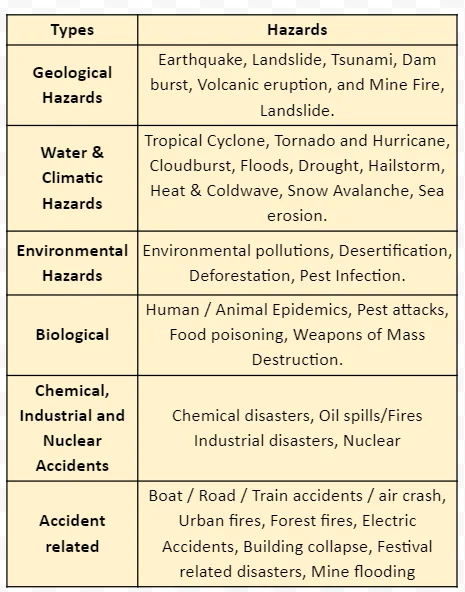![]() 21 Jun 2024
21 Jun 2024
Disasters are as old as human history but the dramatic increase and the damage caused by them in the recent past have become a cause of national and international concern.
A Disaster is a serious disruption of the functioning of a community or a society involving widespread human, material, economic or environmental losses and impacts, which exceed the ability of the affected community or society to cope using its own resources.
Disasters can be caused by naturally occurring events, such as earthquakes, hurricanes, flooding, or tornadoes, or they can be due to man-made events, either accidental (such as an accidental toxic spill or nuclear power plant event), or deliberately caused (such as various terrorist bombings and poisonings).
|
Word Origin The term disaster owes its origin to the French word “Desastre” which is a combination of two words ‘des’ meaning bad and ‘aster’ meaning star. Thus the term refers to ‘Bad or Evil star’. |
|---|

Meeting of Vulnerability and Hazard Causing Disaster
|
Relationship between Hazard, Vulnerability and Disaster |
|---|
|

|
Additional Information Hazards are always prevalent, but the hazard becomes a disaster only when there is greater vulnerability and inadequate capacity to cope with it. |
|---|
|
POINTS TO PONDER Disasters cause large scale destruction and damage to life and property. However, the disaster’s effect is amplified with increased vulnerability . Can you think of the factors that can make some people more vulnerable than others? |
|---|

|
POINTS TO PONDER Natural Hazards such as Floods, Tsunamis, Landslides etc. are known for wreaking havoc and leading to loss of life and property. Are natural hazards truly natural ?Do humans play a significant role affecting their intensity and frequency? |
|---|
| Must Read | |
| Current Affairs | Editorial Analysis |
| Upsc Notes | Upsc Blogs |
| NCERT Notes | Free Main Answer Writing |
<div class="new-fform">
</div>